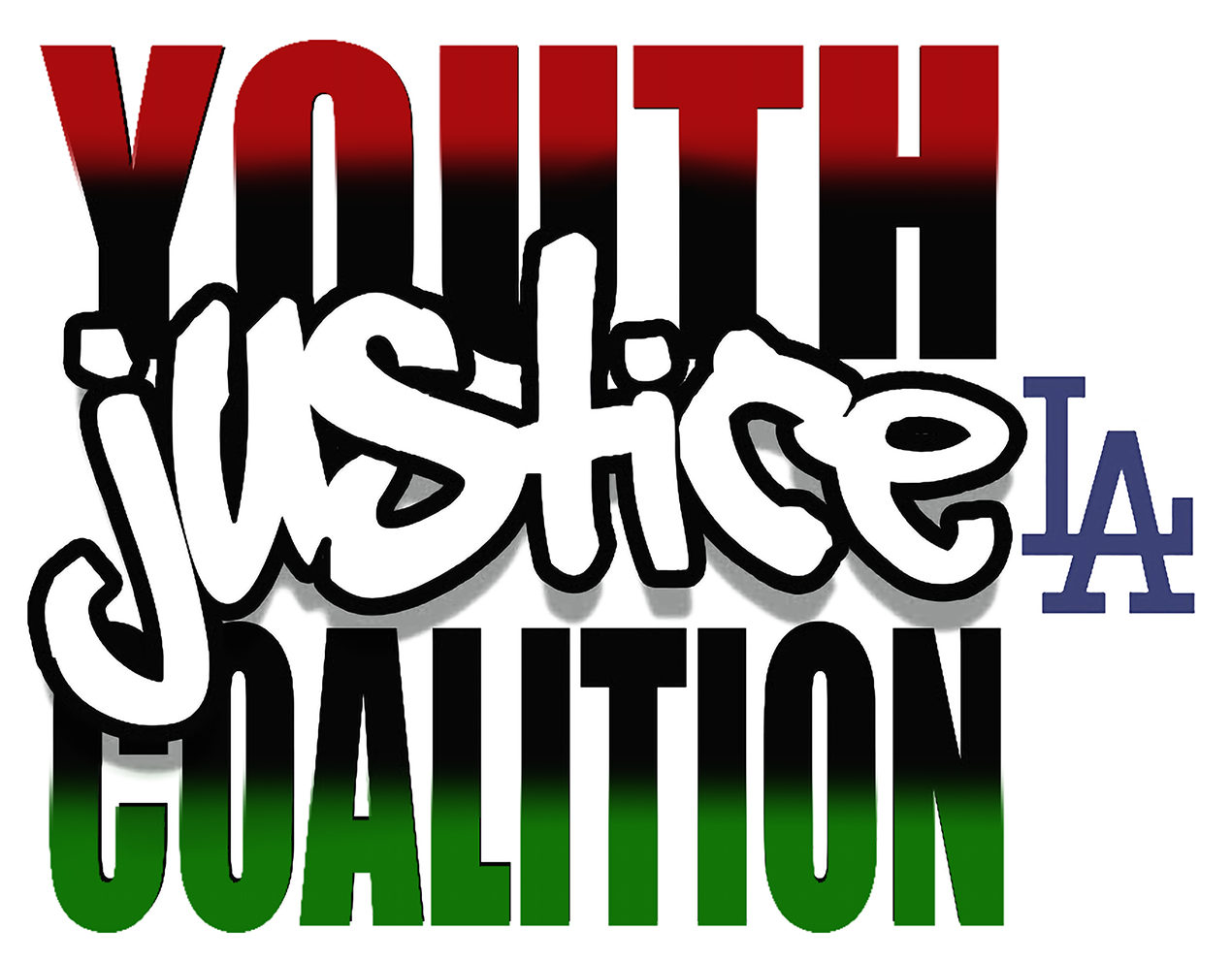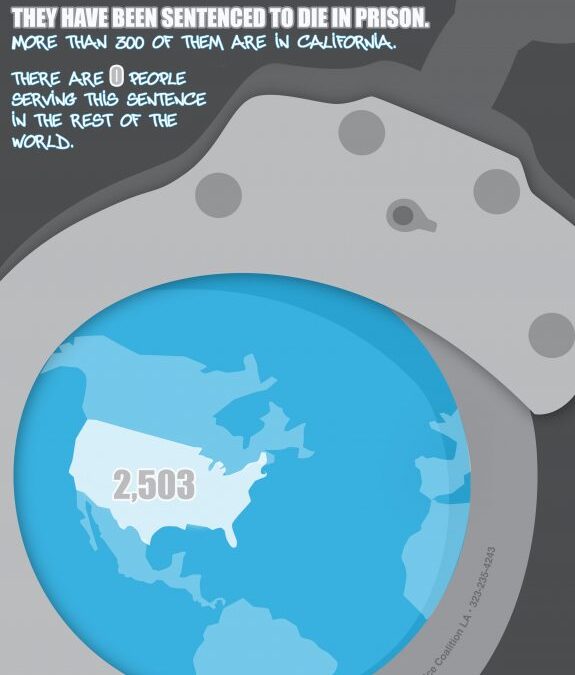
1. Please use the sample letter below to write, SIGN and send a letter of support for SB 394 (Youth Life Without Parole – Compliance with US Supreme Court Ruling) by the end of today – Tuesday, March 14th. Please e-mail us a copy of your letter at action@youth4justice.org
2. If you can be in Sacramento on Tuesday, March 21st, please come to the Senate Public Safety Committee Hearing to support the bill: 9:30AM, California State Capitol, John L. Burton Hearing Room – #4203 on the 4th Floor of the “New Wing”
Sample Letter of Support – Copy on to your group’s letterhead, add to the Letter where you see yellow highlights, sign it and fax it to Senate Public Safety –(916) 445-4688, and e-mail us a copy – action@youth4justice.org Thank you!!!
March 14, 2017
The Honorable Nancy Skinner
California State Senator
Chairperson, Senate Public Safety Committee
State Capitol, Room 2031
Sacramento, CA 95814
Fax: (916) 445-4688
RE: Support for Senate Bill 394 (Lara) Youth Life Without Parole – Compliance with US Montgomery v. Louisiana
Dear Chairperson Skinner:
Name your organization is writing to indicate our strong support of Senate Bill 394 (Lara), a bill that would bill that would bring California law into compliance with the U.S. Supreme Court’s recent decision in Montgomery v. Louisiana (2016), and give individuals serving life without parole for crimes that occurred when they were under 18 the opportunity to work for parole.
Add a paragraph here about your organization and why you care about this issue.
SB 394 brings California into compliance with recent U.S. Supreme Court rulings.
Current California law allows youth to be sentenced to life in prison with no possibility of parole. But, U.S. Supreme Court rulings made clear that our state’s use of the sentence was unconstitutional. In 2012, the U.S. Supreme Court held in Miller v. Alabama that mandatory life without parole sentences are cruel and unusual, in violation of the Eighth Amendment, for most youth under age 18 and should only be used “in the rarest” of circumstances.
Building on Miller, in Montgomery (2016), the Court ruled that every person serving a juvenile life without parole sentence must go back into court and have a full resentencing hearing. Such hearings are extremely costly – both in time and money – and risk years of litigation. Recognizing these burdens on states, the Supreme Court offered an alternative: states could instead follow the lead of Wyoming, where young people sentenced to life without parole for an incident that occurred before they were 18 get a parole hearing after 22 years of incarceration. If passed, SB 394 would provide youth sentenced to life without parole the possibility of parole after the person has served a minimum of 25 years.
SB 394 builds consistency in the way that California treats youth across different laws.
Under state and federal law, people under the age of 18 cannot use alcohol, sign a lease, represent themselves in civil court, join the military, or vote. California recently raised the age to purchase cigarettes to 21, the same age required to use alcohol. State and federal laws argue that young people are not mature enough for these responsibilities. Yet, in California, youth are transferred into adult court and sentenced to die in prison for crimes committed before they were 18 – a sentence that the U.S. Supreme Court has called the youth death penalty.
SB 394 brings California closer to national and international standards.
In recent years, numerous states have changed their laws to prohibit the use of life without parole for youth. The United States remains as the only country in the world that imposes life without parole on youth under the age of 18. Nationwide, there are more than 2,500 youth who have been sentenced to life without parole. There are at least 300 people serving this sentence in California. Throughout the rest of the world combined, there are none. This extreme punishment is a violation of international law and fundamental human rights.
SB 394 challenges California to address unjust racial and age disparities in sentencing.
California’s use of life without parole sentences for youth is particularly unjust. Racial disparities in the imposition of this sentence are among the worst in the country. In California, African American youth are sentenced to life without parole at a rate that is 18 times that of white youth. In 56 percent of the cases in which a youth sentenced to life without parole had an adult codefendant, the adult got a lesser sentence than the youth. In 45% of California cases surveyed, youth sentenced to life without parole did not physically commit the murder, but instead were convicted for their role under the felony murder rule or aiding and abetting law.
SB 394 increases hope, promotes rehabilitation and reduces violence in the state prison system by providing an opportunity for parole.
When California condemns a young person to die in prison, it disregards the human capacity for rehabilitation, the ability of people to grow and change, and the very real physical and psychological differences between youth and adults. No one, not even a judge or a psychologist, can accurately predict who a 16 or 17-year-old will be in 25 years. Senate Bill 394 maintains severe sentences for youth convicted of the most serious crimes, but also gives youth a meaningful opportunity to work toward parole. Even corrections staff and administrators argue that parole opportunities increase hope and therefore safety – for both incarcerated people and CDCR staff throughout the state’s prison system. In order for a person to be released, Senate Bill 394 requires that the parole board and Governor assess concrete evidence about the choices and progress made by the person during at least 25 years of incarceration.
SB 394 helps to address prison overcrowding and saves money.
For many years, California has sought to address prison overcrowding and reduce unnecessary expenditures on incarceration. It costs more than $2.5 million dollars to incarcerate each person sentenced to Juvenile Life Without Parole (JLWOP). Under S.B. 394, individuals serving JLWOP who prove to the parole board and Governor that they have focused on rehabilitation and do not pose a risk to the community could be released. By reducing spending on extreme sentencing, S.B. 394 would save California hundreds of millions of dollars.
For all of these reasons, we urge you to support SB 394.
Thank you for your attention to this matter.
Sincerely,
Your Signature
Your Name
Your Title

